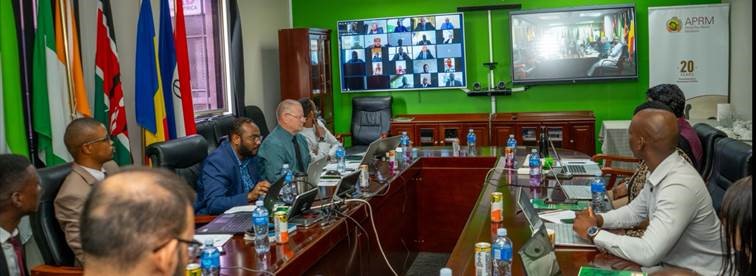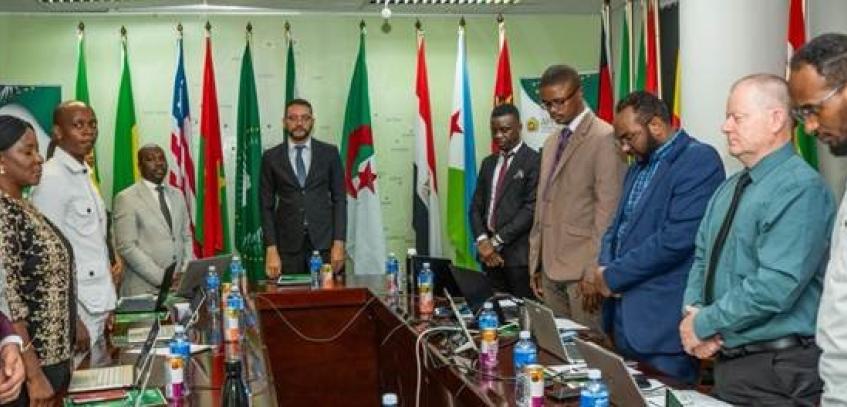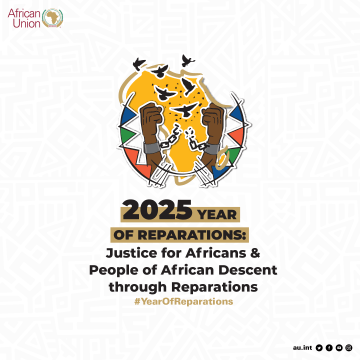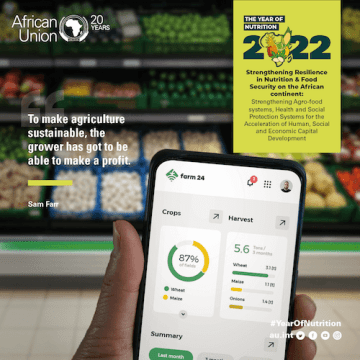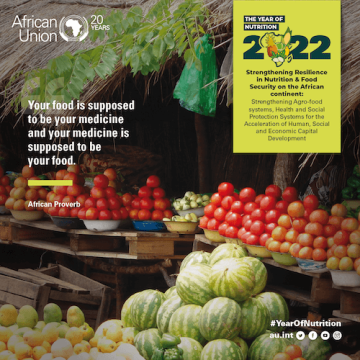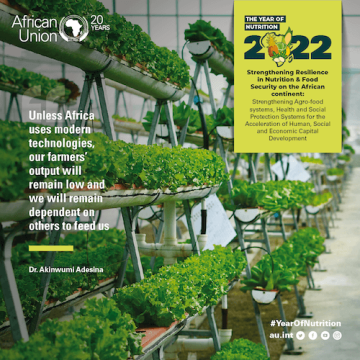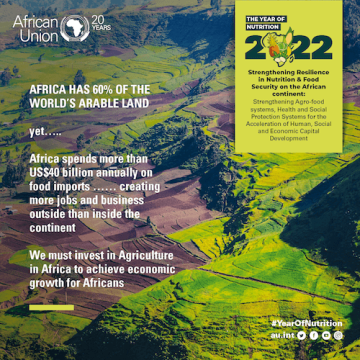Midrand, South Africa – 15 April 2025 – The African Peer Review Mechanism (APRM) Continental Secretariat convened
a virtual sensitisation workshop to engage selected Member States on the voluntary collection of official national data for the APRM Governance Index (AGI). The workshop brought together representatives from 25 countries across the continent and focused on the methodology, tools, and strategies for collecting national official data vital to tracking key governance areas on the continent including the African Union’s Agenda 2063 and UN SDGs 2030.
Delivering opening remarks on behalf of Ambassador Marie-Antoinette Rose-Quatre, CEO of the APRM Continental Secretariat, Mr. Damien Thesee, Chief of Staff, described the AGI as a critical tool for promoting evidence-based governance reforms. He noted that the Index complements the APRM’s existing qualitative assessments by introducing a robust, quantitative dimension aligned with the AU’s long-term goals.
Ambassador Ashraf Rashed, Chairperson of Egypt’s National Governance Committee and Vice President of the AGI Steering Committee, underscored the workshop’s importance in supporting the APRM’s mission. He reiterated the voluntary nature of the process and encouraged broad participation from African countries to ensure the initiative’s success.
H.E. Amara Kallon, APRM Focal Point and Minister of Public Administration and Political Affairs of Sierra Leone, emphasized the need for strong national ownership and collaboration. He highlighted that credible, country-led data collection is essential for accurately assessing governance performance.
Mr. Peter Katwesige opened the first session with an overview of the AGI’s background, objectives, and milestones since its inception in 2017. He outlined the development of the AGI framework, the formation of a technical steering committee, and the piloting of the framework in Côte d’Ivoire, Egypt, and Kenya. The session aimed to build political support, promote national ownership for the AGI, and inform stakeholders about the voluntary data collection process, tools and methodologies.
Dr. Sampson Osei, leading the second session, presented the conceptual framework of the AGI. He described the Index as a new quantitative tool that enables countries to self-assess governance using official national data, without comparative ranking. Dr. Osei addressed key challenges such as political sensitivities, data limitations, and institutional capacity, advocating a mixed-methods approach combining qualitative and quantitative processes.
Dr. Osei and Mr. Loot Van Rensburg also detailed the methodology and digital tools that are envisioned to support data collection process for the AGI. Mr. Van Rensburg showcased a web-based electronic platform designed for efficient, secure, and real-time data collection and analysis. He highlighted the importance of national institutions in supporting consultants, validating data, and ensuring access to official records and expertise.
Participants actively engaged in discussions, sharing feedback and raising important concerns, including the cost of consultancy, data scope, and language accessibility. It was clarified that the consultancy costs will be covered by APRM through funding from the African Development Bank (AfDB), while Member States will be responsible for local logistical support, such as venues and translation services during national validation meetings.
The roadmap for national data collection was also presented, as the recruitment of national consultants is expected to conclude by mid-May, followed by a virtual briefing session in late May. Preparatory work, including background research, will continue through the end of May 2025.
The workshop adopted a proposal to establish a high-level taskforce composed of Member States, which will be responsible for guiding the process of voluntary official national data collection and validation. The taskforce will review the proposed methodology and tools prior to piloting, ensure the implementation of rigorous data collection and validation procedures to enhance data quality and reliability, and engage in advocacy to promote broad participation by key national data custodian institutions.
The workshop concluded with a strong and renewed commitment from all stakeholders to ensure that the APRM Governance Index produced is transparent, inclusive, and contains credible national data obtained from official established statistic offices in Member States. Ambassador Ashraf’s closing remarks further underscored the voluntary nature of the APRM and reiterated the importance of collaboration, national ownership, and careful, gradual implementation of the process to ensure the success of the initiative.
